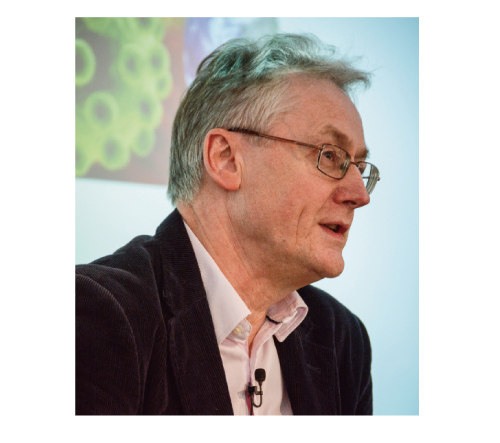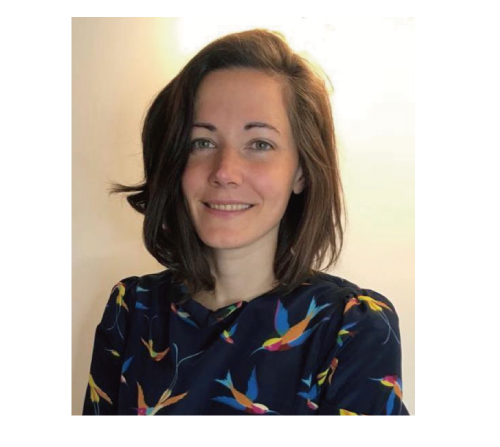April 14 (Fri.)Open seminar
「Past and Future of the IPCC: Institutional Context and Reform for the Future」
Details
Date:
April 14 (Fri.) 2023, 15:00-18:00 JST
Venue:
The University of Tokyo, Ito International Research Center, Seminar Room (3F)& Online
Language:
English
Host:
NIES Climate Crisis Research Initiative
Scenario Initiative Tokyo
Co-host:
Science, Technology and Innovation Governance (STIG) program
Graduate School of Public Policy, University of TokyoUTokyo Center for Climate Solutions (UTCCS)
UTokyo Institute for Future Initiatives (IFI) JMIP
How to participate:
Free admission. Preregistration is required for both in-person and online participation. Please register at the following URL. The capacity for face-to-face participation is up to 45 seats. (Early registration recommended before completion)
*Registration for this event has closed due to capacity.
https://docs.google.com/forms/d/1fyl45qjAT2-7cYCA_TlbopkxeTQKX29T3CGZr9ZqpkQ/edit
Objective
The Sixth Assessment Report (AR6) cycle of the Intergovernmental Panel on Climate Change (IPCC), which began in 2016, will finally come to an end with the release of its Synthesis Report (SYR), scheduled in March 2023. Although the release of its reports was delayed due to the disruptions caused by the COVID-19 pandemic, each Working Group’s reports drew wide public attention, demonstrating the significance of the IPCC in science, policy and society. Soon, the next Seventh Assessment Report (AR7) cycle will begin, following the election of new IPCC Bureau members in the summer of 2023. And in the coming months, there would likely be global debate over the potential reform of the work and structure of the IPCC. In this series of seminars, we invite two international scholars (Prof Mike Hulme and Dr Kari De Pryck) who have been studying the IPCC for many years from a critical social science standpoint. Prof Hulme and Dr De Pryck are experts in Science and Technology Studies (STS) and edited the first social science book that comprehensively analysed the institutional architectures of the IPCC, covering its origins, history, processes, participants, products, and influence. The book was published by Cambridge University Press in December 2022. Through conversations with some guests who have been involved in IPCC activities, we aim to have broader discussions with our audiences about the historical development—how the IPCC has become such a global authority of climate science and what are the achievements and challenges of the IPCC—and the future directions of the IPCC.
IPCC reports are arguably the most authoritative source of climate science. Guided by the so-called ‘policy-relevant but not policy-prescriptive’ principle, the IPCC has been providing useful scientific information for international negotiations at UNFCCC and today it enjoyed a high degree of credibility among international climate communities. However, with the more severe impacts of climate change and the slow progression of emission reduction, the IPCC's own mission itself is being called into question. Some call for a shift from policy-neutral scientific assessment to more solution-oriented policy advice. Indeed, at a time when the world is taking a major step of social transformation towards rapid decarbonisation, if the IPCC continued the business-as-usual approach of producing comprehensive reports in 5-7 years, it would widen the gap between science and policy, raising a question about its policy relevance. Coming close to the end of the AR6 cycle, now is the time to rethink the future of the IPCC. Widely recognised as the success of a global scientific advisory body, discussing institutional reform of the IPCC will be a touchstone for exploring new relationships between science and policy in a rapidly changing world.
Program
15:00 Opening remarks by Shinichiro Asayama (NIES)
First session
15:05 Keynote talk (1)
Speaker: Kari De Pryck (University of Geneva)
Title:‘The IPCC as an Authoritative Knowledge Institution. Past, Present and Future Developments’
Speaker: Mike Hulme (University of Cambridge)
Title:‘Has the IPCC Outlived its Usefulness?’
16:25 Break
Second session
16:30 Panel discussions
Moderator:Masahiro Sugiyama (University of Tokyo/AR6 WG3 LA)
Panellists:Kari De Pryck (University of Geneva)
Mike Hulme (University of Cambridge)
Kiyoto Tanabe (IGES/IPCC Task Force on National GHG Inventories Co-chair)
Masahiro Watanabe (University of Tokyo/AR6 WG1 LA) [Virtual]
Masako Konishi (WWF Japan/Showa Women's University)
Go Yoshizawa (University of Tokyo)
16:55 Free discussions & Q&A with audiences
17:25 Closing remarks by Seita Emori (NIES/University of Tokyo)
17:30 Networking & Social gathering [30mins]
Speakers’ Biographies
 Mike Hulme
Mike Hulme
Mike Hulme is a professor of human geography in the Department of Geography at the University of Cambridge, UK. His work sits at the intersection of climate, history and culture, studying how knowledge about climate and its changes is made, represented and used in public discourse around the world. He was awarded a personal certificate from the Nobel Committee for his ‘significant contribution’ to the work of the IPCC, which received the joint award of the 2007 Nobel Peace Prize. He is the author of ten books on climate change, including Why We Disagree About Climate Change (Cambridge, 2009).
 Kari De Pryck
Kari De Pryck
Kari De Pryck is a lecturer (maîtresse assistante) at the Institute for Environmental Sciences (ISE) of the University of Geneva and also a research associate at the Center Internet et Société (CNRS). At the intersection between International Relations and Science and Technology Studies, she is interested in the production of international environmental expertise and more particularly in the negotiating practices between experts and diplomats within the Intergovernmental Panel on Climate Change (IPCC). Since 2019, she has been observing the IPCC sixth assessment cycle (AR6) as part of a collaborative event ethnography. She is also interested in the science and politics of ocean-based carbon dioxide removal (CDR) and geo-engineering.
Inquiry
●For the content of the seminar:
Shinichiro Asayama (Social Systems Division, NIES) asayama.shinichiro@nies.go.jp
●For the Zoom link and other technical issues on the event day:
UTokyo Institute for Future Initiatives (IFI) sugiyama-staff@ifi.u-tokyo.ac.jp
[March 17, 2023]



